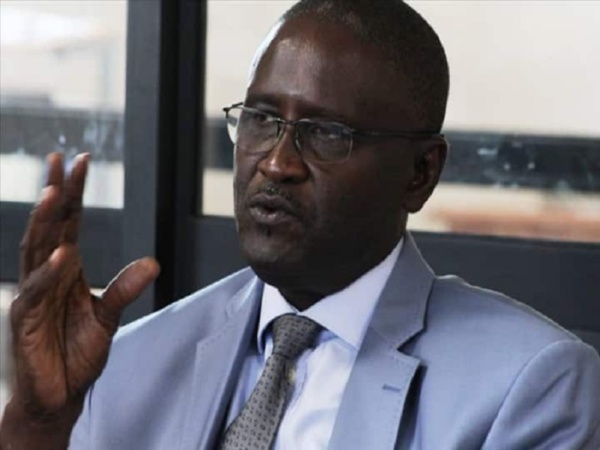Pol Pot's brother-in-law and senior figure in the Khmer Rouge charged with war crimes and genocide
Ieng Sary, centre with cap, in 1977. It is estimated that a quarter of Cambodia's population were murdered or perished during the Khmer Rouge's years in power
Ieng Sary, who has died aged 87, was for many years "Brother No 3" in the hierarchy of the communist Khmer Rouge in Cambodia and was the brother-in-law of Pol Pot, the Khmer Rouge's enigmatic leader. When the Khmer Rouge held power in Cambodia, between 1975 and 1979, during which time it is estimated that a quarter of the population were murdered, or died from disease or starvation, Ieng Sary served the regime as its deputy prime minister and minister of foreign affairs.
He relinquished both portfolios after the Khmer Rouge were driven from power and into exile in Thailand, but remained a spokesman for the movement until the early 1990s. In 1996 he defected to the government in Phnom Penh, and was granted an amnesty by King Norodom Sihanouk.
Ieng Sary lived comfortably for years in Pailin, in north-western Cambodia, and in a capacious villa in Phnom Penh, but a case was being built against him and in 2007 he was arrested. He was put on trial in 2011 by the Extraordinary Chambers in the courts of Cambodia, a joint Cambodian-international tribunal, on charges including crimes against humanity, war crimes and genocide. Proceedings were continuing at the time of his death, as were those against two other former Khmer Rouge leaders, Nuon Chea and Khieu Samphan.
Ieng Sary was born into a Sino-Khmer family in the southern Vietnamese province of Trà Vinh, still home to a sizable Cambodian minority. Born as Kim Trang, he changed his name after moving to Cambodia, then a protectorate of France, in 1942. As a student at Cambodia's only high school, he joined the pro-independence Democratic party and helped to organise an anti-colonial strike at the school in 1949.
There were no tertiary institutions in Cambodia at the time, and in 1950 Democrats in the Cambodian education ministry awarded Ieng Sary a scholarship to study political science in France. Like several other Cambodians at the time, including Saloth Sar – later known as Pol Pot – Ieng Sary enjoyed living in Paris and neglected his studies. In 1951,he joined the French Communist party. By the sheer force of his personality, he dominated the Marxist study group that he co-founded in Paris with an older Cambodian, Keng Vannsak.
In the same year he married a radical fellow student, Khieu Thirith, but in 1953, Ieng Sary's scholarship was withdrawn because of his political activities. The couple lingered in Paris for three and half more years. In the meantime, Cambodia had gained its independence from France and Sihanouk had embarked on 17 years of idiosyncratic one-man rule. By staying in France, Ieng Sary, who assumed that he would play an important role in Cambodia's small, clandestine Communist movement, was bypassed by Saloth Sar, who had returned home in 1953 and briefly joined the Vietnamese-led resistance to the French.
In 1956, Saloth Sar married Thirith's older sister, Khieu Ponnary, who shared his radical ideas. When Ieng Sary and Thirith returned to Cambodia in 1957 they lived for a time with Saloth Sar and his wife. The four became teachers in Phnom Penh and performed organisational tasks for the embryonic and harassed communist movement, renamed the Workers' Party of Kampuchea in 1960, when Ieng Sary became a member of its five-man central committee.
Saloth Sar took charge of the committee three years later, after his predecessor, Tou Samouth, had been killed by Sihanouk's police. In the same year, fearing arrest, Ieng Sary, Saloth Sar and several colleagues fled to a Vietnamese communist military base that moved back and forth across the Cambodia-Vietnam border, staying there for two years. When the Vietnam war intensified, they moved to the remote, lightly populated north-eastern province of Mondulkiri, and changed the name of their party to the Communist Party of Kampuchea (CPK). Over the next five years, the isolated directorate of the CPK recruited followers and plotted to seize power. Little is known of Ieng Sary's role in these discussions. The CPK inaugurated armed struggle against Sihanouk in early 1968, but resistance was ineffective until 1970, when Sihanouk was deposed in a pro-American coup. The Khmer Rouge swiftly allied themselves with Vietnamese communist forces, who provided them with arms, equipment and training.
Resistance to the new regime in Phnom Penh was ostensibly headed by Sihanouk, who had established himself in opulent exile in Beijing. Ieng Sary travelled there in 1971 as "the representative of the interior", ie of Pol Pot and other leaders of the CPK who were fighting in Cambodia. His job was to monitor Sihanouk's mercurial behaviour. The two men despised each other, but swallowed their pride sufficiently to travel together to the so-called liberated zones of Cambodia in 1973. By that stage, the Vietnamese had withdrawn their troops, and the fighting in Cambodia, augmented by extensive US bombing, had become a civil war.
Phnom Penh fell to the Khmer Rouge forces in April 1975, when Ieng Sary was in Beijing. He had played no part in the military campaigns that had led up to victory. As the new government of Democratic Kampuchea took shape in 1976, he was named deputy prime minister and minister of foreign affairs, while holding on to his position in the party's central committee. There is some evidence that he was not trusted by the CPK's second-in-command, Nuon Chea, who disapproved of his "bourgeois" point of view.
Over the next three years, Ieng Sary was a spokesman for the regime, travelling abroad to conferences and boasting that the Cambodian revolution was superior to any that had ever taken place elsewhere. Because of his reputation as a truth-telling intellectual, he drew hundreds of young Cambodians back from overseas. Soon after they arrived, many of these deluded patriots were put to death. In Phnom Penh, where Ieng Sary lived comfortably, he made sure that his wife and family occupied relatively undemanding positions in the regime.
As Democratic Kampuchea hardened its stance towards Vietnam in 1977, and went to war with its former ally in 1978, Ieng Sary worked to expand the narrow range of countries with which Democratic Kampuchea enjoyed diplomatic relations. Several openings occurred, but they came too late to prevent the Vietnamese invasion of December 1978 that removed Democratic Kampuchea from power the following month.
In 1979, at a show trial in Phnom Penh, Ieng Sary and Pol Pot were labelled "fascists" and condemned to death in absentia for genocidal crimes. In the 1980s, as the Khmer Rouge reformed in Thailand, Ieng Sary took responsibility for military and economic relations with China. By the early 1990s, when he proposed that the Khmer Rouge should contest national elections, as stipulated by the United Nations, the leadership sidelined him. In 1996, he defected to Phnom Penh.
As he emerged from the shadows, it was clear that his arrogance and interest in good living had not deserted him. Feeling secure with the amnesty he had received, he blamed the horrors of Democratic Kampuchea on other people: at a press conference soon afterwards he stated that Pol Pot "was the sole and supreme architect of the party's line, strategy and tactics". In 1997, Khmer Rouge in-fighting, followed by Pol Pot's death under house arrest in 1998, and the capture or surrender of remaining leaders, meant that the movement ceased to exist.
Ieng Thirith was arrested alongside her husband in 2007, but was judged mentally unfit to stand trial. She survives him. Their son Ieng Vuth is the deputy governor of Pailin.
Ieng Sary (Kim Trang), political leader, born 24 October 1925; died 14 March 2013














